Welcome to one of the most active flamenco sites on the Internet. Guests can read most posts but if you want to participate click here to register.
This site is dedicated to the memory of Paco de Lucía, Ron Mitchell, Guy Williams, Linda Elvira, Philip John Lee, Craig Eros, Ben Woods, David Serva and Tom Blackshear who went ahead of us.
We receive 12,200 visitors a month from 200 countries and 1.7 million page impressions a year. To advertise on this site please contact us.
|

|
|
Music Theory: Why?
|
You are logged in as Guest
|
|
Users viewing this topic: none
|
|
Login  | |
|

   
rombsix
Posts: 7807
Joined: Jan. 11 2006
From: Beirut, Lebanon

|
 RE: Music Theory: Why? (in reply to duende) RE: Music Theory: Why? (in reply to duende)
|
|
|
Hey Henrik,
I feel that you are a very wise and smart person. Your answers to my questions were so logical and meaningful. Thanks a million for your help. I hope I will be able to start tackling some basic theory soon, but the problem is that school just takes up ALL my time - I can barely practice, let alone try and learn theory (I guess my brain would explode)!
I think I have a good amount of the "hearing" aspect. I mean, I can transcribe a piece usually very well (note for note), and when I hear something (like a transcription of a piece I know into Guitar Pro format), I can easily pick out wrong notes that are too flat or too sharp. And I have composed some falsetas over the five years I've been playing, but I'm too lazy to record or memorize them (unless they're so easy that I memorize them in situ), and my internet connection is too slow for me to upload them and see what you guys think. The problem is that my school time takes up too much of my energy and life, and the country I live in is too small and non-flamenco-ish (very few players, in fact I know NONE other than my teacher, and to tell you the truth, he is not as good as I want him to be - he just gave me the basics, but it's not his fault, because he has no inspiration in a screwed up country like mine). My problem is perfectionism - it is starting to be a negative thing and it's starting to eat me up on the inside. I can't settle for doing something mediocre-ly. I just have to be a master at anything I do, or I feel I've failed. My priority is obviously my medical education, but even in that, the fact that I am not rank #1 in my class, or not the smartest, just kills me and makes me think, "If I'm not the best, then why bother altogether?" This is the issue with theory: I said to myself, if I want to learn flamenco guitar, I have to learn it perfectly (including full understanding of theory, perfect technique - a la PdL speed, super compositions, etc.), but I can see that it is not going to happen very soon (if ever). Sorry if I made you feel like a therapist!! HEHEHE.
Anyhow, thanks again a million times Henrik.
Ramzi
_____________________________
Ramzi
http://www.youtube.com/rombsix
|
|
|
|
REPORT THIS POST AS INAPPROPRIATE |
Date Feb. 4 2007 12:23:37
 |
|

   
guitarbuddha
Posts: 2970
Joined: Jan. 4 2007

|
 RE: Music Theory: Why? (in reply to rombsix) RE: Music Theory: Why? (in reply to rombsix)
|
|
|
My reason for exploring theory is that I have some problems that I want to solve on my instrument. Now I can sing pretty much at pithc anything that I can hear in my head, however I dont have this facility on my instrument.
Now one of the best solutions to this is that I try to play simple tunes by ear in all twleve keys on the guitar. Also i sing the tune and strum the chords by ear in all twelve keys but this only unlocks so much of what I can hear in my head and so the procedures that Ricardo and I were discussing are about unlocking the rest.
Now I have met a lot of people with perfect pitch, my dad has it and I have met several classical musicians who do. They all have one thing in common they learned a keyboard instrument at a very young age. Now the ones that know all of the notes as well ( those who learnt to read music at a young age ) they can instantly play anything that they hear with no question of making a mistake. I know two people who can close their eyes and see the score as they listen to a new piece of music in any style. Now take a moment to imagine that you dont need to wait for a transcription of music you love you just slow it down in your head and play it straight away.
Now I can play a familiar tune by ear pretty quick but there will be some bum notes here and there. This is not because of a lack of musical understanding because if you can sing somethin then you GET it but it is the imperfect memorisation of the fingerboard from an aural point of view. Now if the music is pretty weird ( and I LIKE weird ) then the problem of finding the notes is amplified . You know if I am hearing a funky idea in my head and its a fast exotic sounding scale sequence if I want to be free to play that then I need the fingering and I need to have a clear association of the sounds and the fingering. Thats the point of the excercises that i have being discussing with the help of Ricardo and others. You know to play major key melodies you need to have the major scale down pat or youl play bum notes no matter how talented you are.
Now that is the 'why' for me. If you dont have a problem that you want to solve ( like how to write a piece in a given style FAST ) then you dont need theory and if you learn theory that you cant apply on the spot to your instrument then it is just trivia.
So I guess I agree with Henrik 100 percent ( although ii, V, I's( Dm, G7 ,C ) sound a little odd in flamenco if they dont move back to the andalucian cadence vi, V, IV, III( Am G7 F E ) pretty quickly .For major key in flamenco as in most other folk music IV, V, I ( F G7 C ) or even II, V, I ( D major G7 C ) is more often used and sounds more appropriate .
So if you are playing jazz study the cadences that occur in Jazz ( ii V I ). If playng flamenco then the Claude Worms and Oscar Hererro books on Solea and Tangos etc have sections where they explain harmony and relate it STRAIGHT AWAY to musical examples.
Anyway YOU SHOULD ONLY THINK ABOUT THE THEORY THAT YOU UNDERSTAND AND WHICH HELPS EXPLAIN TO YOU WHAT YOU ARE PLAYING RIGHT NOW . And if what I have been saying is confusing to you then you should absolutely forget about ( i mean ... I find myself confusing )it and not worry about it because if you try and memorise things that you dont understand they will stall our brain . Believe it or not thats not my intention.
One piece of advice I would give to anyone is that, no matter what level you are at, YOU SHOULD KNOW WHICH CHORD YOU ARE PLAYING AT ALL TIMES.
Oh ( of course I can't limit myself to only one piece of advice ) and dont try and learn theory from a book which is intended for classical pianists unless you are a classical pianist or are prepared to learn it to for the purposes of studying classical harmony, which is pretty damn sparse in flamenco.
|
|
|
|
REPORT THIS POST AS INAPPROPRIATE |
Date Feb. 4 2007 14:39:50
 |
|

   
Ricardo
Posts: 14801
Joined: Dec. 14 2004
From: Washington DC

|
 RE: Music Theory: Why? (in reply to rombsix) RE: Music Theory: Why? (in reply to rombsix)
|
|
|
quote:
1- Do we need to know / understand music theory in order to be good flamenco composers?
2- Can somebody with no talent be able to (if he has a firm grasp of theory) "scientifically" compose (by knowing what chords fit with what scales, etc.) something that will generally be accepted as "nice-sounding?"
3- Do the masters (PdL, Sanlucar, Sabicas, Ricardo [and by that I mean Nino, and not Richard - we already know he is a master of theory just by reading his posts with guitarbuddha and Romerito!!! CHINESE to me) know this theory? I know that PdL cannot read music, so I think he does not know theory, yet his compositions are super ... is that pure talent?
4- How important is a grasp of theory to be an all-round "good musician" or "good guitarist" or "good improviser?"
1. Absolutely NOT. In some cases if not careful, it can get in the way.
2. Yes. Especially nowadays with computer technology. You can type random bs notes and "hear it back". Might even sound good sometimes. But going further, there are composers for instruments that can't even play them. For example RODRIGO was a blind pianist, who composed one of the most beautiful guitar compositions ever. You could say he had "talent" but really, nothing else he wrote is that famous, or even considered as good.
3. Sanlucar, Riqueni, JM Cañizares, to name a few famous ones, do infact know the abstract music theory you refer to, and know how to read and write music. The other maestros don't, but they understand theory "on the neck of the guitar" so to speak, in a more intuitive way. The thing that really matters to me, that puts all these guys into the same "level" as musicians, is their undertanding of rhythm. This is more important than the amount of "theory" they undertand, as composers of "flamenco guitar music".
4. For guitarists, I say, not important AT ALL. I say that because there are examples of the TOP maestros of guitar, for almost every genre, who don't know how to read or write music. jAzz-Django Reinhardt, Rock-you name it, Flamenco- you name it, folk/country/ethnic whatever-you will find plenty. Classical guitar is the exception, althought it is ironic because the VAST MAJORITY of classical guitarists don't even compose. Their music theory knowleadge is for reading and analyzing only. I say, of all the styles, JAZZ has a special use for theory that CAN be learned intuitively, but I would say is more efficient if learned in the abstract way.
In all cases and genres, the separating factor between the high level players and the mediocre, is IMO RHYTHM.
Just adding to flamenco/music theory connection. I feel that rhythm and TECHNIQUE is the primary means of composing or creating in flamenco. Meaning, flamenco guitarists let their "fingers do the walking" so to speak, they weave things together on the neck in a way that the end result is very fluid, solidly played music. It is rare they compose things that are too difficult for their own technique level, because it is from that vantage point the the music springs forth. On the other hand, folks that "know music theory" might spend time searching for things on the neck they know sound good. They can find themselves in a position of not being able to execute their own ideas, or the music might have some places that are not "fluid". I speak from experience on this, as I have found myself in such a position as a composer at times. I recognize it in other players too, when I hear it, I won't name names. Another problem of "knowing theory" is you have already a vision of what will sound "bad", and not let the fingers experiment. But this problem is not so bad as the first I mentioned. One personal problem I have knowing the neck, is a guitar with "dots" in combo with a capo. Really messes with my poor mind. Like thinking in two different keys at the same time!
The tone of this I know is "anti theory". I have to say knowing it is intellectually "fun", and it can be a useful tool or short cut, but you have to undertand HOW to use it in context and in combination with other important aspects of music playing/composing/improvising. And not be afraid to "discard it" altogether at times.
Ricardo
|
|
|
|
REPORT THIS POST AS INAPPROPRIATE |
Date Feb. 5 2007 0:16:58
 |
|

   
Ricardo
Posts: 14801
Joined: Dec. 14 2004
From: Washington DC

|
 RE: Music Theory: Why? (in reply to guitarbuddha) RE: Music Theory: Why? (in reply to guitarbuddha)
|
|
|
quote:
Hey Ricardo, what about the...
Hey man, glad you like it. I respect your tastes. I don't like to give my "I don't like music by..." list, and stick to talking about stuff I do like, when it comes to the internet. Reason is I keep an open mind because I have been known to change my mind in the past. But, to be totally honest since you asked, I hate all of it. I barely can stand the Aranjuez, except for the loud orchestra parts which are powerfull a beautiful of course, but the guitar parts don't do it for me. If Paco did not play it, would never have listened to it so much. But it is the least listened to thing Paco did for me. That goes for Falla and Lorca music too. And all the other spanish classical composers that guitarists interpret. I have listened to quite a lot of it, and even learned to play some of it in hopes to change my mind. At this point, I would rather hear flamenco guitar or music by guitar players.
Sorry man, you asked. I hate to hurt anyone's feelings, because I hate when people go on and on about how some music I love, sucks. OK on to more positive things!
Ricardo
|
|
|
|
REPORT THIS POST AS INAPPROPRIATE |
Date Feb. 5 2007 1:09:42
 |
|

   
John O.
Posts: 1723
Joined: Dec. 16 2005
From: Seeheim-Jugenheim, Germany

|
 RE: Music Theory: Why? (in reply to rombsix) RE: Music Theory: Why? (in reply to rombsix)
|
|
|
quote:
3- Do the masters (PdL, Sanlucar, Sabicas, Ricardo [and by that I mean Nino, and not Richard - we already know he is a master of theory just by reading his posts with guitarbuddha and Romerito!!! CHINESE to me) know this theory? I know that PdL cannot read music, so I think he does not know theory, yet his compositions are super ... is that pure talent?
I heard PDL learned to read notes for the Concierto de Aranjuez as he wanted to play it exactly as it was written.
Never heard PDL in an interview say anything regarding his knowledge of theory, but I find it very hard to believe he was able to improvise with McLaughlin and Di Meola without knowing anything about theory. On the other hand, the man's a genius, could be he just picked it up...
|
|
|
|
REPORT THIS POST AS INAPPROPRIATE |
Date Feb. 5 2007 11:28:23
 |
|
Guest

|
 RE: Music Theory: Why? (in reply to rombsix) RE: Music Theory: Why? (in reply to rombsix)
|
|
|
but i have a question plz ? for example i ve know some scales and chords some of the major and minor chords ,,,, but till now when i play solos it doesnt seems very flamenco so can anyone answers me about this? ...  
_____________________________
|
|
|
|
REPORT THIS POST AS INAPPROPRIATE |
Date Feb. 5 2007 14:28:56
 |
|
Guest

|
 RE: Music Theory: Why? (in reply to duende) RE: Music Theory: Why? (in reply to duende)
|
|
|
quote:
ORIGINAL: duende
Doublekk2.
knowing the chords and the correct scales is like knowing the alphabet,
its only letters, its not a great book. Do you understand what i mean?
a solo is made up of phrases, a "language" just like you would learn a forign language you nead to learn phrases from other people untill you have enough and have developed an understading enough to make youre own.
okay so how to make my solos flamenco sense?
_____________________________
|
|
|
|
REPORT THIS POST AS INAPPROPRIATE |
Date Feb. 5 2007 17:20:11
 |
|

   
n85ae
Posts: 877
Joined: Sep. 7 2006

|
 RE: Music Theory: Why? (in reply to guitarbuddha) RE: Music Theory: Why? (in reply to guitarbuddha)
|
|
|
One of my guitar player friends who I admire a lot, put it to me bluntly one time and said. Why don't you learn how to play music ... Instead of chords, scales and arpeggio's? It hurt my feelings a lot at the time, but it was the truth.
I really took it to heart, and keep it in mind always.
A friend of my brother's has been studying the "Lydian Chromatic Concept" under George Russell for years now, and I must say that he know's music theory inside out backwards, and forwards, and to this day I can't stand anything he plays. It's all so unconnected from music that it's just an intellectual excercise in my opinion. Like very precise, very calculated, very well thought out fingernails scraping on a chalkboard ...
Actually what has helped me out a lot with my own playing, is working on Flamenco. I had studied Jazz quite a bit, and my left hand technique and my knowledge of how things were connected was pretty good. But the rhythm in the music wasn't there. Once I started learning how to use my right hand that was for me what started make it come together.
It would seem, that with 3-4 chords, and a good right hand technique you can make music to make people want to dance. A great left hand with an arsenal of theory stuff, but no rhythm well ... Zzzzzz ..... Boring.
Jeff
|
|
|
|
REPORT THIS POST AS INAPPROPRIATE |
Date Feb. 5 2007 17:46:18
 |
|

   
Mark2
Posts: 1871
Joined: Jul. 12 2004
From: San Francisco

|
 RE: Music Theory: Why? (in reply to rombsix) RE: Music Theory: Why? (in reply to rombsix)
|
|
|
quote:
ORIGINAL: rombsix
Hehe ... The title sounds like some sort of philosophical book or something. But the point of this topic is to ask the following questions:
1- Do we need to know / understand music theory in order to be good flamenco composers?
>No, but as people not raised with the music, an understanding of it combined with a good ear could make your studies faster and easier.
2- Can somebody with no talent be able to (if he has a firm grasp of theory) "scientifically" compose (by knowing what chords fit with what scales, etc.) something that will generally be accepted as "nice-sounding?"
>Yes, in college I studied music theory and was required to compose using various guidelines and rules. I couldn't even play the stuff. The teacher would play the students examples-sometimes I was delighted with my results when I heard them.
3- Do the masters (PdL, Sanlucar, Sabicas, Ricardo [and by that I mean Nino, and not Richard - we already know he is a master of theory just by reading his posts with guitarbuddha and Romerito!!! CHINESE to me) know this theory? I know that PdL cannot read music, so I think he does not know theory, yet his compositions are super ... is that pure talent?
> In general no, and yes, Paco is a genius.
4- How important is a grasp of theory to be an all-round "good musician" or "good guitarist" or "good improviser?"
I think it can be very important, but there are, as Ricardo pointed out , great musicans in almost every style that don't know it. Henrik said it all, it's about the ears.
|
|
|
|
REPORT THIS POST AS INAPPROPRIATE |
Date Feb. 5 2007 22:33:06
 |
|

   
Kevin
Posts: 294
Joined: Sep. 7 2008

|
 RE: Music Theory: Why? (in reply to rombsix) RE: Music Theory: Why? (in reply to rombsix)
|
|
|
quote:
Hehe ... The title sounds like some sort of philosophical book or something. But the point of this topic is to ask the following questions:
1- Do we need to know / understand music theory in order to be good flamenco composers?
Recent work in cognitive science demonstrates that theory (conceptualization, categorization, cross domain mapping, analogy, etc. are basic to human understanding. All people theorize. All musicians theorize music. The question then becomes, is there a general music theory or is music theory culture or even individual specific. The answer is that every musical practice might be explained by several theories and when you have a music like flamenco that is a hybrid, the question becomes more complex.
Here is Sanlucar's take: http://www.jondoweb.com/contenido-la-guitarra-en-antonio-mairena-808.html
He claims, or so says the author of the article, that to play flamenco today is impossible if one does not study music. There has been a recent turn to theory by Sanlucar, Fernandez, Granados, Pedro Ojesto, Pedro Perez Alvarez and a few others. And with the recent flamenco university appointment of Pedro Ojesto as teacher of music theory, Pepe Habichuela as teacher of solo and accompaniment, and Guadiana as teacher/cantaor, flamenco music theory is beginning to get institutionalized.
quote:
2- Can somebody with no talent be able to (if he has a firm grasp of theory) "scientifically" compose (by knowing what chords fit with what scales, etc.) something that will generally be accepted as "nice-sounding?"
Let's say you understand theory but have never played flamenco. The answer is NO. You have to understand some of the conventions of flamenco. If you already know some of the basics however, then theory can act as a library of possibilities. For example, if you abstract the chords from Agustin Barrios' Study in Cm you can do some very beautiful thing in flamenco. How you fit these into compas will depend on your current understanding of compas, of how remates, cierres, and cadences work etc.
In other words, Theory (of common practice or jazz) and Practice (composition, improv of flamenco) inform eachother.
Hegelian dialectic = thesis-antithesis-syntheses or Practice (undertanding/some experience)-Theory (Rhythm/harmony)-New composition.
quote:
3- Do the masters (PdL, Sanlucar, Sabicas, Ricardo [and by that I mean Nino, and not Richard - we already know he is a master of theory just by reading his posts with guitarbuddha and Romerito!!! CHINESE to me) know this theory? I know that PdL cannot read music, so I think he does not know theory, yet his compositions are super ... is that pure talent?
Again, music theory of common practice music (it really should be THEORIES) has been institutionalized and has a long history but the layperson also theorizes although they might not have the same vocabulary. The guitar is a great instrument to do this because it is gridded/mapped. Grip and shapes are easily learned, memorized and can later be used in new contexts (what anthropologists call recontextualization).
quote:
4- How important is a grasp of theory to be an all-round "good musician" or "good guitarist" or "good improviser?"
Ramzi
Again, everyone has a theory. You are speaking specifically of common practice "classical" theory. It does not hurt but should be a tool not a crutch. For examples, movement by fifths (e.g. Dm-G-C7-F-Bb-[A]) are very common but you do not have to always move by fifth. A substitute for a ii-V-I progression is ii-IVb-bVII7-I (Gm-Bbm[7]-Eb7-F), sometimes called the backdoor progression (Insert dirty joke here  ). ).
What music theory (as we usually think of that term) offers, is a language to speak about many different musics but you have to be careful. Jazz theory is in some ways an extension of "classical" theory, and so is flamenco. But they also differ in many ways. D-A-D-G in classical in the key of D can be thought of as I with either an anticipation or suspension depending on the context of how one arrives at that gnote. In pop and jazz it is ok to just call that chord a Dsus4 regardless of whether the g is a chord tone, non-chord tone, anticipation or suspension, etc.
On a final note, no pun intended, in my field of ethnomusicology we cannot just ethnocentrically label a chord, scale, etc. without noting where it comes from historically and socio-culturally. A Bbaug6 with an open e-string has to be considered from a variety of perspectives. Is the open e a non-chord drone? Is it part of the chord? Can the aug sixth be notated as a b7 or should it remain an aug6? Is it a part of a cadence and do flamenco have a similar term for cadence? Etc.
Music theory, like flamenco, is not something one learns and then forgets about. If you do theory correctly, it is like flamenco, a way of life...that is why Paco got developed such a broad understanding (although he was not aware of music terminology to explain his understanding).
By the way Ramzi, you still in Nashville?
_____________________________
|
|
|
|
REPORT THIS POST AS INAPPROPRIATE |
Date Jan. 28 2015 23:57:07
 |
|

   
jmb
Posts: 119
Joined: Oct. 14 2014
From: Vallecas - Madrid - Spain

|
 RE: Music Theory: Why? (in reply to rombsix) RE: Music Theory: Why? (in reply to rombsix)
|
|
|
(quotes are my translation from Spanish. Sorry if they are not accurate at all)
1- Do we need to know / understand music theory in order to be good flamenco composers?
For sure… but…
2- Can somebody with no talent be able to (if he has a firm grasp of theory) "scientifically" compose (by knowing what chords fit with what scales, etc.) something that will generally be accepted as "nice-sounding?
Sanlucar: "The problem of flamenco guitar is that it depends currently on talent. Our evolution depends too much on talent. We should look for a better systematization of its learning"
Serranito: " Currently you cannot develop flamenco without musical (Academic) knowledge"
One day, you meet Raimundo Amador and think that you won’t never get a 0,5% of its talent.
3- Do the masters (PdL, Sanlucar, Sabicas, Ricardo [and by that I mean Nino, and not Richard - we already know he is a master of theory just by reading his posts with guitarbuddha and Romerito!!! CHINESE to me) know this theory? I know that PdL cannot read music, so I think he does not know theory, yet his compositions are super ... is that pure talent?
PdL:"I don't believe in inspiration. I believe in work".
Remedios Amaya: "Camaron always took a recorder with him and looked for sounds, melodies, tunes that he or old music. He stole sounds and then use them in its music."
4- How important is a grasp of theory to be an all-round "good musician" or "good guitarist" or "good improviser?"
PdL (about Meola/Mclaughing ): More or less he said” The do that… and for me was impossible, how do they improvised?. Then they start explaining me what they do and I started to do the same but all sounds ‘payo’. I had to do my best, doing what they did but with a flamenco sound”
I think, the issue is what is defined as "theory". The conceptual frame for each person could be "V, I, notes, scores..etc.." . The academic Western System … You know … or could be done other conceptual frame. The answer might be in other field: mathematics. I always remember a book from Benoit Mandelbrot, the most important mathematician in fractals, when he criticizes that mathematics in the XIX century become focusing on notation and written mathematical language. He said that they have forgotten that most of the ancient mathematics were developed using drawings and geometry as conceptual frame to the point that they detest now this conceptual frame, closing doors. For him both frames were good and he used both.
The conceptual frame of Raimundo Amador o PdL is/was different to academics, but.. it works. I belive that the key sentence above is Sanlucar’s sentence. But probably, Western academic conceptual frame should converge with traditional conceptual frame and not replace the traditional. Replacing traditional frame is a mistake.
_____________________________
Suenas payo ¡y lo sabes!
Sing and string - other flamenco blog
|
|
|
|
REPORT THIS POST AS INAPPROPRIATE |
Date Jan. 29 2015 8:24:07
 |
|
 New Messages New Messages |
 No New Messages No New Messages |
 Hot Topic w/ New Messages Hot Topic w/ New Messages |
 Hot Topic w/o New Messages Hot Topic w/o New Messages |
 Locked w/ New Messages Locked w/ New Messages |
 Locked w/o New Messages Locked w/o New Messages |
|
 Post New Thread
Post New Thread
 Reply to Message
Reply to Message
 Post New Poll
Post New Poll
 Submit Vote
Submit Vote
 Delete My Own Post
Delete My Own Post
 Delete My Own Thread
Delete My Own Thread
 Rate Posts
Rate Posts
|
|
|
Forum Software powered by ASP Playground Advanced Edition 2.0.5
Copyright © 2000 - 2003 ASPPlayground.NET |
0.109375 secs.
|


 Printable Version
Printable Version



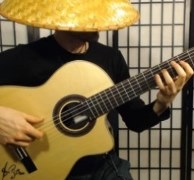

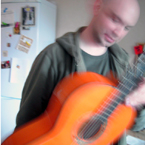

 and very good ones im sure
and very good ones im sure 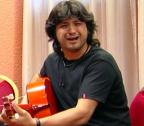
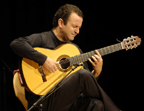



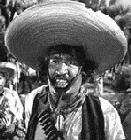

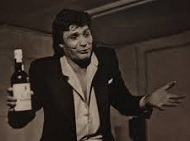
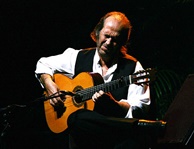
 New Messages
New Messages No New Messages
No New Messages Hot Topic w/ New Messages
Hot Topic w/ New Messages Hot Topic w/o New Messages
Hot Topic w/o New Messages Locked w/ New Messages
Locked w/ New Messages Locked w/o New Messages
Locked w/o New Messages Post New Thread
Post New Thread